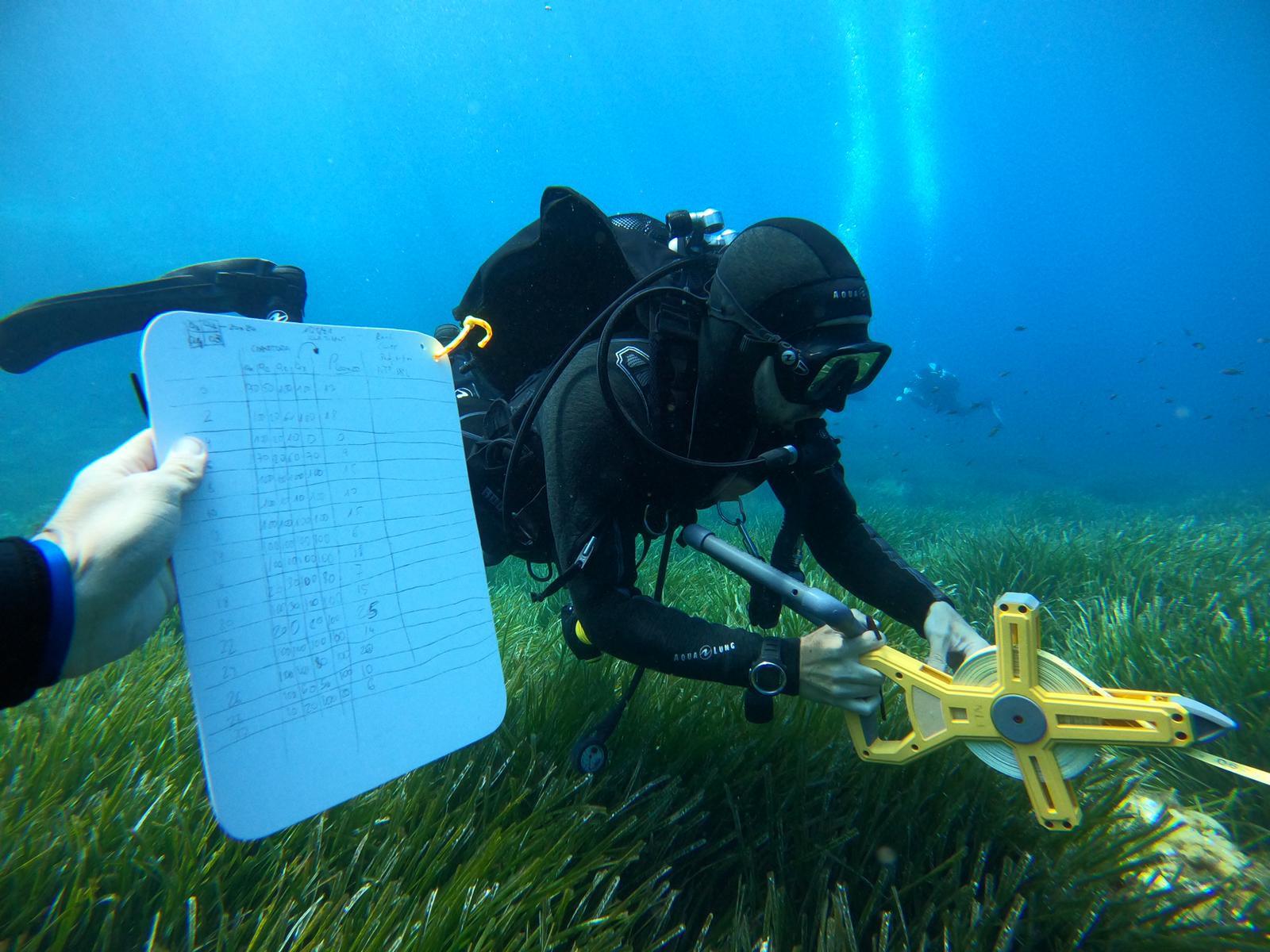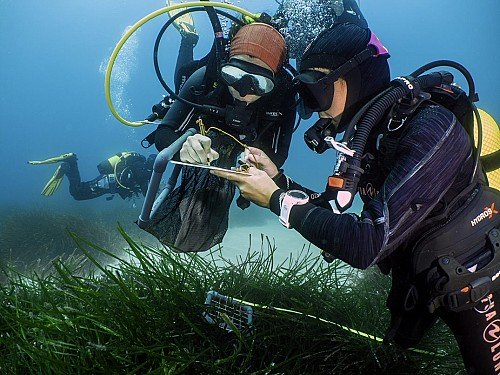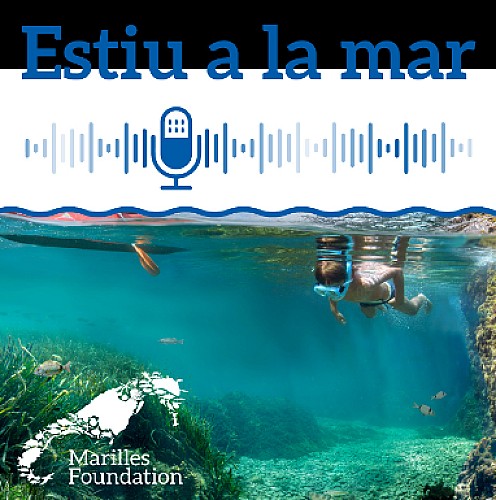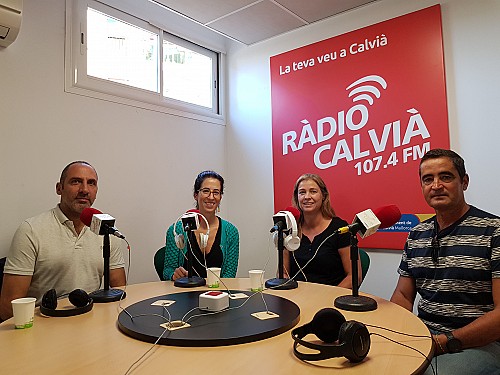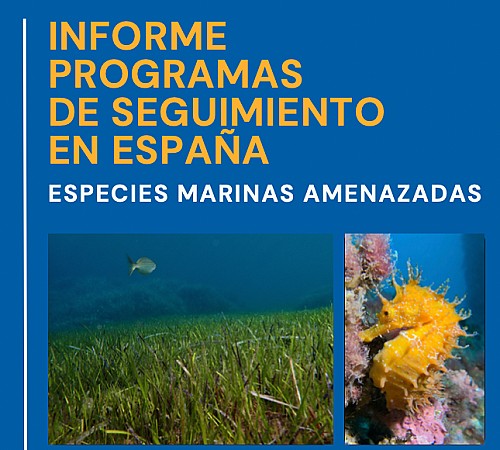Observadores del Mar consolidates as the benchmark platform for marine citizen science in Spain
The platform has signed an agreement with ICM, CEAB, IMEDEA, SOCIB and IEO to promote citizen participation in research activities aimed at marine environment preservation.
Observadores del Mar, promoted by the Institut de Ciències del Mar (ICM) of Barcelona, has consolidated its position as the marine citizen science platform of reference in Spain thanks to an agreement with other CSIC marine centres that seeks to boost a research network made up of citizens and the scientific community through the development of activities aimed at the the marine environment preservation.
The members of the agreement include the Blanes Centre for Advanced Studies (CEAB), the Mediterranean Institute for Advanced Studies (IMEDEA), the Balearic Islands Coastal Observation and Forecasting System (SOCIB) and the Spanish Institute of Oceanography (IEO).
The role of citizens
Marine citizen science has proven successful in many projects throughout the world's seas. In fact, given the gaps in knowledge about the marine environment, citizen science stands as a key tool to expand our capacity to observe biodiversity and the consequences of human activities related, for example, to the climate crisis, thus contributing to the conservation of the oceans. Indeed, citizen science is capable of generating knowledge, promoting awareness of the environmental problems affecting the marine environment and facilitating the dialogue between the scientific community and society.
The agreement signed now will encourage the development and implementation of research activities related to citizen science in order to promote research networks made up of citizens, scientists and other professionals, capable of obtaining and validating data on the impacts, habitats and species in the Spanish marine environment.
"This agreement is a very important tool to promote the participation of society in an effective way in the implementation of actions for the conservation of the rich marine biodiversity of our coasts and, in particular, of marine protected areas", states Joaquim Garrabou, an ICM-CSIC researcher and the Observadores del Mar coordinator.
Hilmar Hinz, from the IMEDEA, points out that "we seek, through participating in projects such as Observadores del Mar, to establish a bridge of communication between citizens and scientists that facilitates exploration, sharing, enjoyment and joint progress in the knowledge of the sea".
In this sense, Rosa Rodríguez, from the SOCIB, exposes that "Observadores del Mar is undoubtedly the best platform to amplify our activities and projects and involve the public with a message that all the participating institutions share: to know, participate and promote the conservation of our ocean".
From his side, the CEAB researcher Emilio Casamayor explains that "citizen science is also essential to raise public awareness of the problems generated by our activity, which is why we work with schools, for example, to study the presence and effects of microplastics in the marine environment”.
Finally, María Gómez-Ballesteros, head of the marine environment and environmental protection area at the IEO, trusts that "the wide territorial coverage of the Institute's nine coastal centres will contribute to further improving citizen participation in Observadores del Mar, which is so important for promoting marine scientific culture in society".
Observadores del Mar, a case of success
Observadores del Mar is a benchmark platform for citizen science that since 2012 has been dedicated to the conservation of the marine environment, involving citizens in this task. It does so by proposing challenges and providing direct and simple scientific protocols so that they can participate in the scientific process.
Currently, the platform has 15 projects running that involve more than 100 researchers from 45 scientific institutions that validate the observations, thus guaranteeing the quality of the information provided. Over the last ten years, the platform's activities have involved more than 3500 observers and more than 350 organisations, generating more than 16,000 observations.
All these data, which are freely accessible and transferred to national and international repositories, are helping to better understand the extent of the effects of processes such as climate change, the introduction of exotic species, episodes of mass mortality of species or the pressure of human activities on the marine environment.
In fact, they are an important contribution to the LIFE INTEMARES project, which is coordinated by the Biodiversity Foundation and the Marilles Foundation and, from 2019, will support Observers of the Sea.

